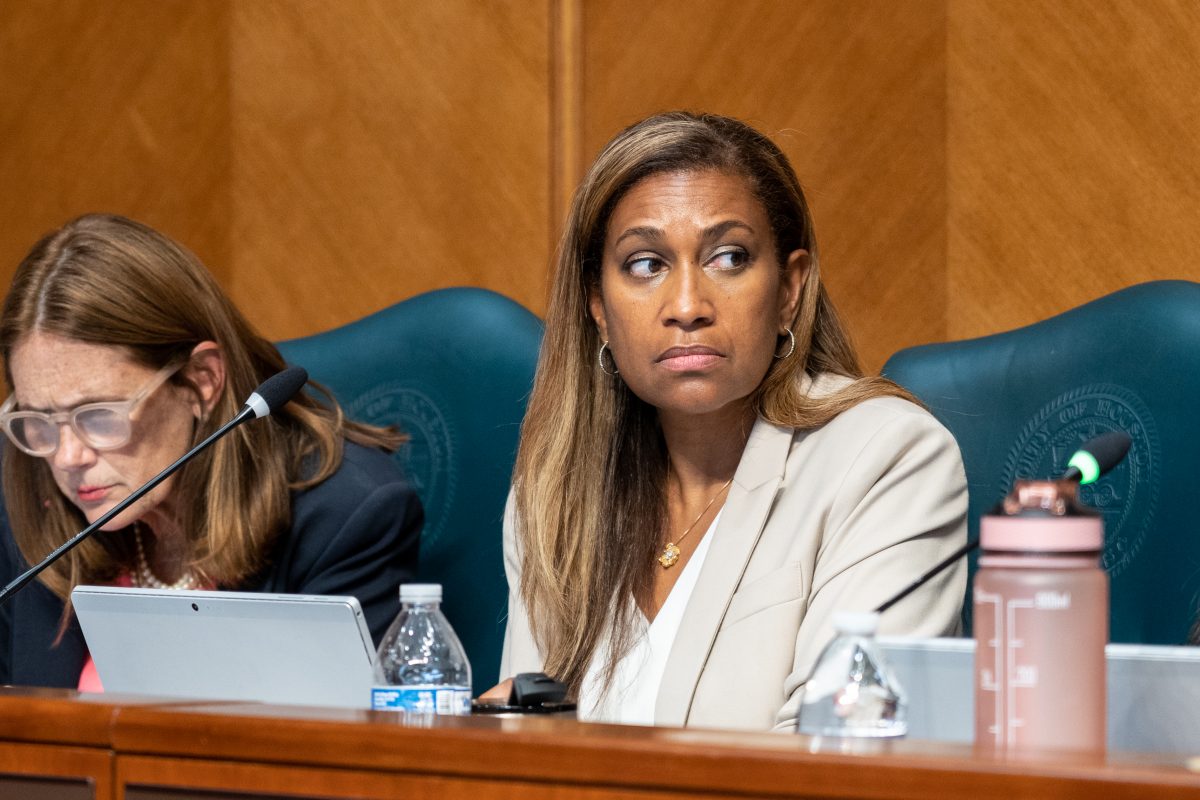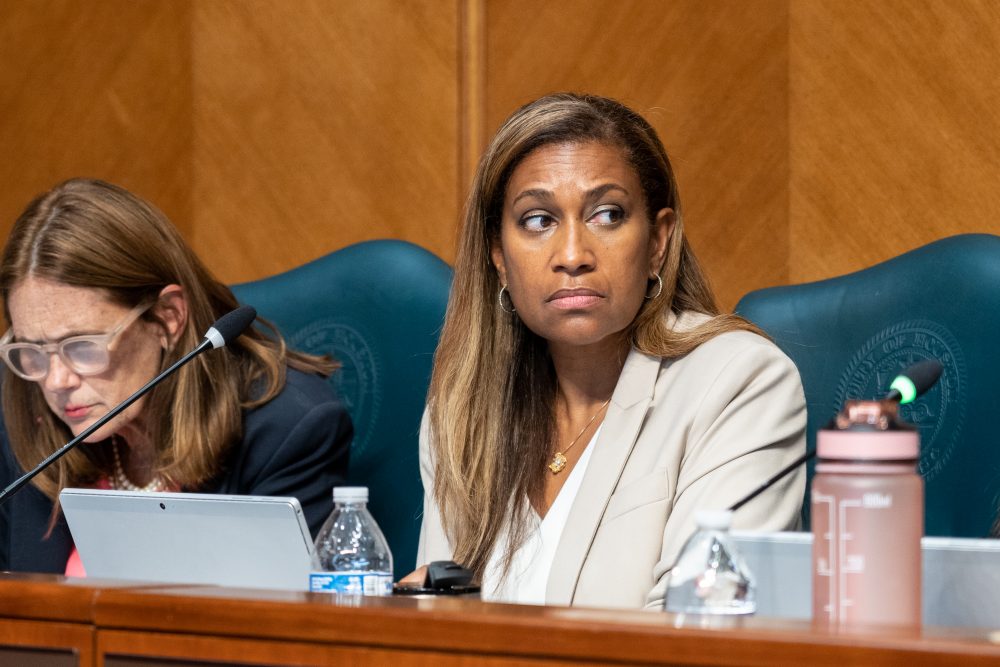Lucio Vasquez / Houston Public Media
Houston City Council member Letitia Plummer on June 2, 2021.
After four years of development, a proposed ordinance to ramp up inspections and fines of allegedly problematic apartment complexes was delayed Wednesday by Houston City Council member Letitia Plummer — the author of the law, who in an interview pointed to pressure from an industry association.
The proposed ordinance is intended to protect residents from substandard and dangerous housing conditions through more stringent enforcement and required registration. If approved, it would create a new registry of High Risk Rental Buildings, based on the volume of 311 complaints and habitability-related citations. Buildings in the registry would be subject to additional inspections and daily fines for persistent violations of health and safety standards.
The Houston Apartment Association (HAA) sent a letter to Mayor John Whitmire and the city council on Monday arguing the proposed process to identify so-called High Risk Rental Buildings is “flawed.”
Ben McPhaul, the HAA’s vice president of government affairs, reiterated the association’s stance during the city council’s public comment session on Tuesday, when he said the concerns included “duplicative registration for high-risk rental buildings relying on potentially unverified 311 complaints to identify them and ignoring property size.”
On Wednesday, Plummer tagged the item without comment, delaying it by one week. After the tag, Plummer told Houston Public Media, “the apartment association is putting a lot of pressure on council.”
“The constituents that you heard (during the city council’s public comment session on Tuesday) are supporting the item, but they feel like it’s not strong enough, and I completely agree,” Plummer said. “We’ve really worked hard to work with all stakeholders, the administration. The apartment association completely redlined our original document (after a committee meeting in May). We’ve done everything in our power to make sure that everyone is protected. I think our job as government officials is to find that balance.”
RELATED: Houston City Council member Letitia Plummer announces run for Harris County judge
Plummer said she will continue to advocate for the ordinance as proposed before the scheduled vote next week.
“It’s disappointing,” she said. “I mean, I obviously wanted to see it happen today, but I also want to make sure that I have the opportunity to talk to all stakeholders on both sides to see what their concerns are — but there’s not much more we can do on this.”
On Tuesday, several community members spoke in favor of Plummer’s intention — while arguing the revised ordinance didn’t go far enough.
Under the proposed law, only five apartment complexes would be covered by the program — those receiving the highest volume of 311 complaints that “specifically allege conditions that affect the health or safety of tenants” as well as 10 or more “verified citations that impair health and safety of the tenants.” The apartment association argued that the process ignores size differences, potentially penalizing larger complexes, while tenant advocates said the list should include more properties.
Julia Orduña, Southeast Texas regional director for advocacy group Texas Housers, told the city council she supported an earlier version of the ordinance, which didn’t have a cap on the number of properties in the program.
“This is not a good faith effort to tenants across the city to hold five properties up to a microscope while letting thousands of landlords continue to abuse their renters,” Orduña said.
The ordinance would also create an Apartment Standards Enforcement Committee consisting of municipal department staffers as well as representatives for landlords and tenants.
The proposed law was placed on the council agenda by council members Plummer, Edward Pollard, Carolyn Evans-Shabazz and Joaquin Martinez though relatively new powers granted by Proposition A — the charter amendment approved by voters in 2023 allowing at least three council members to place items on the agenda, a power previously held solely by the mayor.

